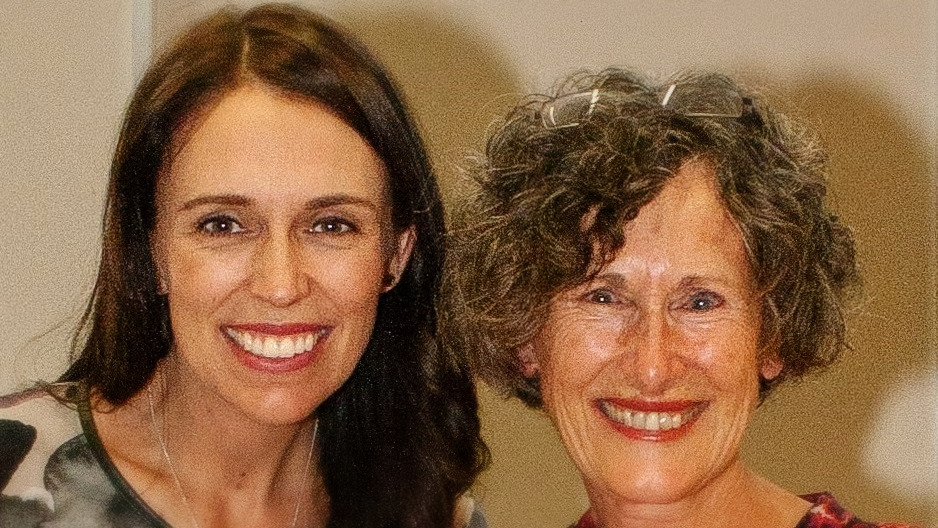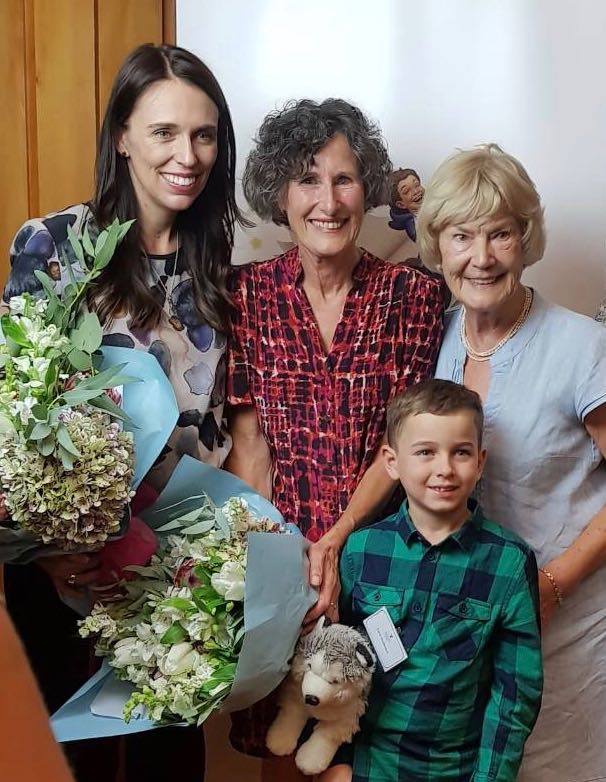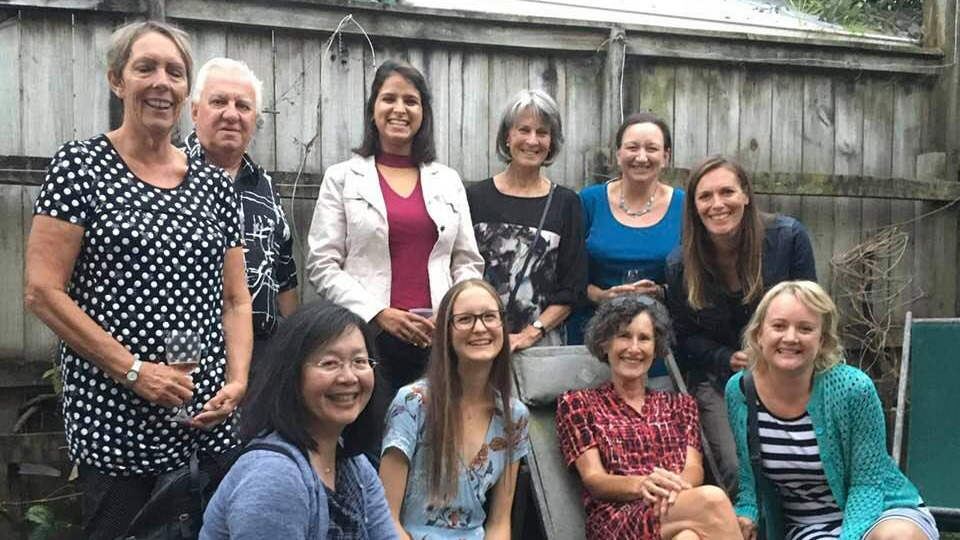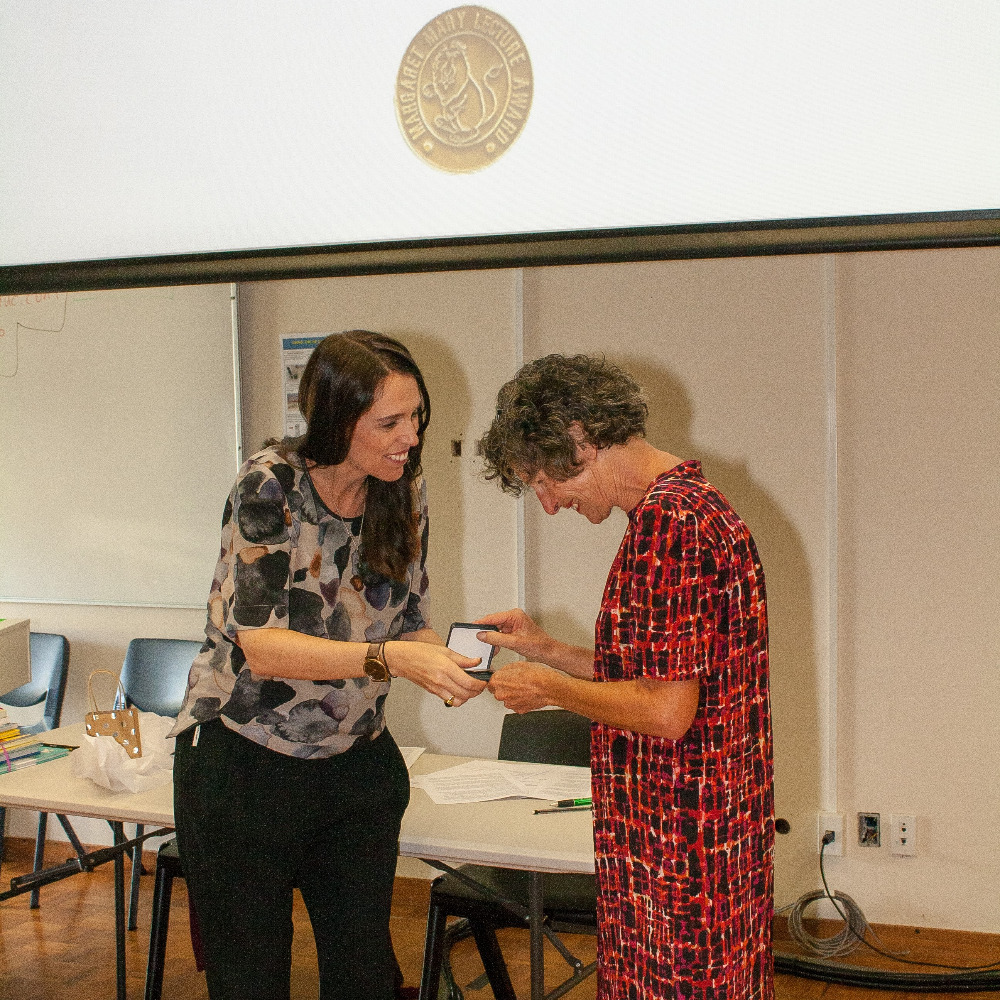Janice Marriott has written fiction and non-fiction for children and adults; she is an editor, audio producer, screenwriter, poet, mentor, manuscript assessor, teacher and gardener. She is also the 2018 recipient of the Margaret Mahy Medal, giving her lecture in Auckland on 8 April. This is an insightful interview about her influences and career, by Philippa Werry.

The Storylines Margaret Mahy Medal and Lecture Award is bestowed for ‘lifetime achievement and significant contribution to the broad field of children’s literature and literacy’. This prestigious award is given by the Storylines Children’s Literature Foundation of New Zealand, and each speech is reprinted in the Storylines year book, with some available online. The list of recipients, beginning in 1991 with Margaret herself, followed by Dorothy Butler and Joy Cowley, is a roll-call of the brightest and best in New Zealand children’s literature. The 2018 recipient, Janice Marriott, is no exception.
Janice has written fiction and non-fiction for children and adults; she is an editor, audio producer, screenwriter, poet, mentor, manuscript assessor, teacher and gardener – and these days, one of her most important roles is that of grandmother. A few weeks before she was due to deliver the Margaret Mahy lecture, we talked about her reaction to winning the award, her childhood reading, her writing career and the different strands that have made up her writing and personal life.
Janice’s Margaret Mahy moment
When I talked to Janice she was still working on her speech and admitted to being both ‘moved and astonished – to use one of Margaret’s favourite words.’ She said, ‘I didn’t expect anyone to be thinking of me in terms of awards!’
As with many recipients of the award, Janice has a Margaret Mahy moment to impart: the memory of Margaret getting up with a young grandson at her 70th birthday party and both reciting the whole of Down the back of the chair. Margaret’s ‘amazing naturalness with words’ – the way that rhythm and rhyme ‘just flowed out of her’ – is something Janice has always admired, and she still has all of Margaret’s picture books, bought while living in England for her son, and now being enjoyed by her grandson Tane.
Margaret’s ‘amazing naturalness with words’ – the way that rhythm and rhyme ‘just flowed out of her’ – is something Janice has always admired…
Janice’s childhood reading didn’t include any picture books that she could remember: ‘I don’t think there were such things, other than Beatrix Potter.’ Many of her favourite books featured animals: The Wind in the Willows, The Jungle Book, Black Beauty, Lassie, and she also worked her way through the Secret Seven and Famous Five series.
Janice liked writing stories as a child, and writing has always been a form of self-expression for her, but she has fitted her writing into the corners of her full-time working life, as a teacher, audio producer, editor, creative writing tutor and manuscript assessor.

‘Turkey gobble’, her first published piece for children, appeared in Junior Journal no 1, sandwiched between two other items by Joy Cowley and Margaret Mahy. Letters to Lesley, published in 1989, was very successful, and many other books followed, both fiction and non-fiction. Crossroads won the Esther Glen award in 1996 and Thor’s Tale, the story of a whaling boy on a whaling station at South Georgia at the time of Shackleton’s Endurance expedition, was the NZ Post Children’s Book Awards 2007 junior fiction winner.
A few months after Thor’s Tale was published, Janice got an unexpected phone call, ‘as fuzzy as it if it was coming from the moon’. The caller was the woman who ran the Shackleton library on the island of South Georgia, now a stop for cruise ships going to the Antarctic Peninsula. They had heard about Janice’s book and wanted to congratulate her about it. ‘But we’ve had lots of talk around the morning tea table,’ the woman continued, ‘and none of us can remember when you were down here!’
A few months after Thor’s Tale was published, Janice got an unexpected phone call, ‘as fuzzy as it if it was coming from the moon’.
For Janice, who carried out all her research in the Wellington Public Library, this was welcome proof that she had ‘got it right’, and one of the high points of her writing life.
Janice’s life has always featured several interweaving strands: her family, her writing, her teaching and her love of gardening. Sometimes these strands combine in unexpected ways. Her interest in gardening and her friendship with Virginia Pawsey, whom she encouraged to believe she was a writer, has resulted in four books so far, beginning with Common Ground, as well as spin-offs such as writing columns for gardening magazines.
She also gets ‘masses of satisfaction’ from seeing her writing students do well, whether that means winning prizes, getting published or simply writing something for family that they are proud of.

Family has always been hugely important to Janice. She shares the memory of another high point in her writing life: accepting the award for Crossroads at the ceremony at Government House, turning around and seeing her son coming barrelling down the aisle to give her a big hug (something not all teenage boys would do!).
When her grandson, Tane, was born in Auckland seven years ago, Janice (who says she is driven by the idea that she ‘has to be useful’) came up from Wellington to ‘be useful’ in a grandparent role. She and Tane now share a lot of time together, before and after school and in the weekends.
Her current garden, on the lava-strewn slopes of Mt Eden, is full of ‘vegetables and beautiful things’; when I talk to her, four ‘exquisite pumpkins, all different colours’ are lined up on the kitchen bench. Janice believes fervently in every child’s right to an outdoor life and the garden doubles as a place of exploration and play for Tane, who uses the vegetable beds for his diggers and dumpers and, more recently, for practising to be an archaeologist. Tane is also a great reader, and as well as sharing a love of gardens, Janice takes him to the library for ‘armfuls of books’ and has shown him how libraries can be ‘like a sitting room, your place wherever you are in the city.’
…when I talk to her, four ‘exquisite pumpkins, all different colours’ are lined up on the kitchen bench.
In her Storylines Margaret Mahy Lecture, Janice used some of her own poems and conversations with Tane to illustrate the five vital steps in the literacy ladder: listening, language, story, reading and writing. Words are a gift that we can give to children, starting with the earliest lullabies, nursery rhymes and songs. When ‘their listening ears are buzzing with words’, children will be able to name the world around them and create their own stories.

The close relationship between grandmother and grandson is evident in the funny and thoughtful conversations that Janice relates, and in Tane’s musings on vocabulary; he has been given ‘a bulging kete of words’ which is already enriching his life and will help him face whatever the future brings.
‘Stories define us, shape us, and make us,’ Janice says. Her wonderful lecture shows us how storytelling is ‘an act of sharing and caring’, how stories are ’free, like sunshine, and as necessary’, and how all of us are story tellers.
‘Tell your own stories to your children,’ she urges. ‘Everyone can do it.’
For more about the award, and the full list of recipientsInterview with Janice on Standing room only, 8 April 2018
Philippa Werry
Philippa Werry is a children’s writer who began her career writing for the School Journal. Since then, her non-fiction, stories, plays and poems have been widely published and several of her titles (including The Telegram, Enemy at the Gate and Anzac Day: the New Zealand Story) have been shortlisted for book awards or named as Storylines Notable Books.



